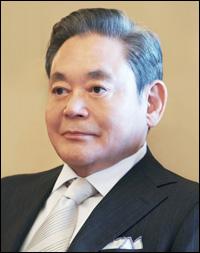Samsung to sue Apple over LTE patents, partner with Microsoft to avoid Android lawsuits
According to a report by the Korean Times, Samsung plans to not only appeal the jury's findings of its willful infringements, but also to pursue new patent litigation related to 4G LTE networks.
Abuse of patent law, not the pursuit of innovation
The paper stated that "Samsung confirmed that it will immediately sue Apple if the latter releases products using advanced long-term evolution (LTE) mobile technology," although Apple already has released New iPad models with 4G LTE connectivity, having introduced them nearly six months ago.
Suing over new standards essential patents related to LTE would only expand the trouble Samsung is facing in its efforts to defend its willful infringement of Apple's utility patents, and most critically its overt infringement of Apple's design patents and its registered trade dress, by leveraging standards patents already committed to Fair, Reasonable and Nondiscriminatory (FRAND) licensing terms.
Samsung controls less than an eight of the patents related to LTE, with Nokia, Qualcomm and Ericsson accounting for 43 percent. However, Samsung has pursued the same strategy as Google's Motorola subsidiary in arguing that it only takes "one bullet to kill," or that just a few standards essential patents can be use to successfully monopolize entire markets. Both companies are under investigation in the U.S. and E.U. for allegedly abusing patent law with regard to FRAND-committed patents.
The same jury that found Samsung in infringement threw out all of Samsung's patent claims against Apple, including those related to the 3G specification. Apple argued that it does not infringe upon the patents, but also that Samsung misled standards bodies by hiding patents covering the technology it submitted for inclusion in those standards.
Proper disclosure of the patents would have clarified the situation, as patents contributed to industry standard specifications such as MPEG, WiFi, 3G and LTE are required to be broadly licensed under FRAND terms. Apple itself has contributed to such industry standards as H.264 and HTML5, in prominent cases giving up its patent rights entirely to help forge standards (as was the case with MPEG 4's QuickTime container format and HTML5's Canvas features, both of which are now free, not just FRAND).
Despite its threats to ramp up litigation, Samsung has also complained in a letter to its employees that a company can't win over customers and continuously grow "when its primary means to competition has been the outright abuse of patent law, not the pursuit of innovation."
From a "crisis of design" to just a "crisis"
Samsung's attempts to escape from what its internal documents described as a "crisis of design" were portrayed by Apple in the trial as being an intense, three month effort to closely copy the iPhone, a tactic Apple's attorney's said was approved by the company's top executives.
Samsung Electronics chairman Lee Kun-hee | Source: Korean Times
The Korean Times quoted Kim Sang-jo, a professor of economics at Hansung University, as noting that "the leadership of Samsung Chairman Lee Kun-hee is being put on the test as Samsung is in crisis, at least for the time being."
It cited a Samsung executive as saying "the chairman calmed down and slightly closed his eyes after he was briefed [on the verdict]. But he didn’t say anything further."
The article also cited unnamed officials as saying that Samsung is "closely partnering with Microsoft to cut its dependency on Google Android," while at the same time stating that "Samsung has been in talks with major U.S. carriers to jointly develop modified design technology. This will be effective, though we can’t unveil more details for the time being."
Samsung previously partnered with Microsoft to use Windows Mobile, the platform powering its popular line of BlackJack phones that were selling when the iPhone debuted. Since the iPhone, however, Samsung has largely sidelined its support for Microsoft's mobile platforms to focus on Android.
Samsung currently sells smartphones running Android 2.x Froyo and Gingerbread, Android 3.x and 4.x, as well models running its own Bada platform. It recently introduced new Windows Phone 8 phones and tablets running Windows 8.
 Daniel Eran Dilger
Daniel Eran Dilger











 Malcolm Owen
Malcolm Owen
 William Gallagher and Mike Wuerthele
William Gallagher and Mike Wuerthele
 Christine McKee
Christine McKee
 William Gallagher
William Gallagher

 Marko Zivkovic
Marko Zivkovic









